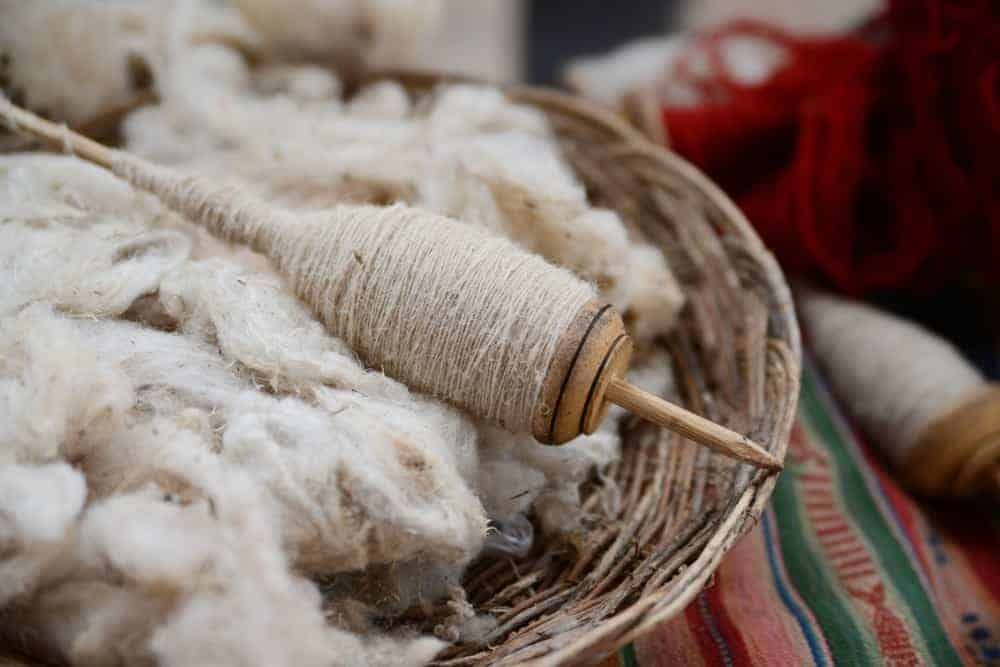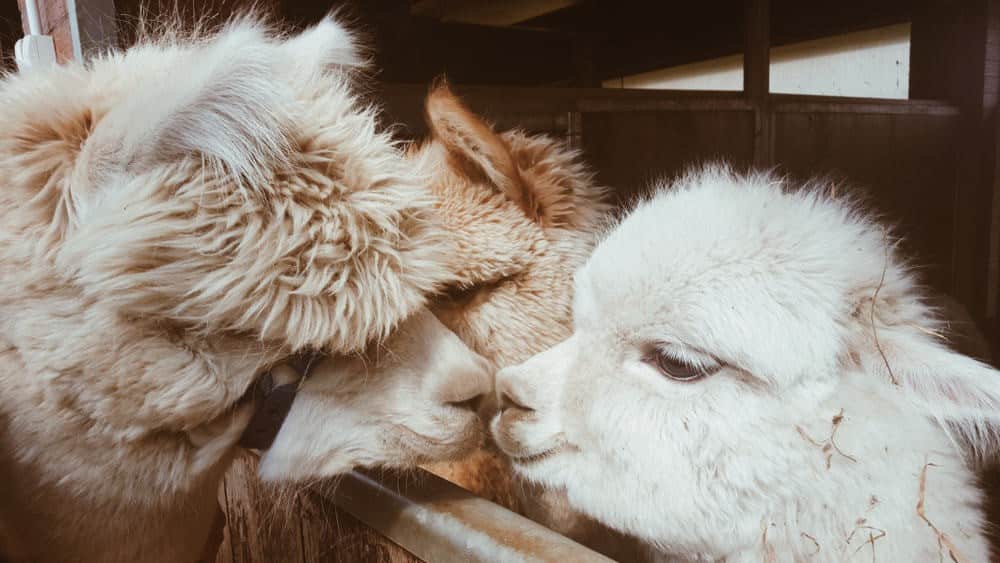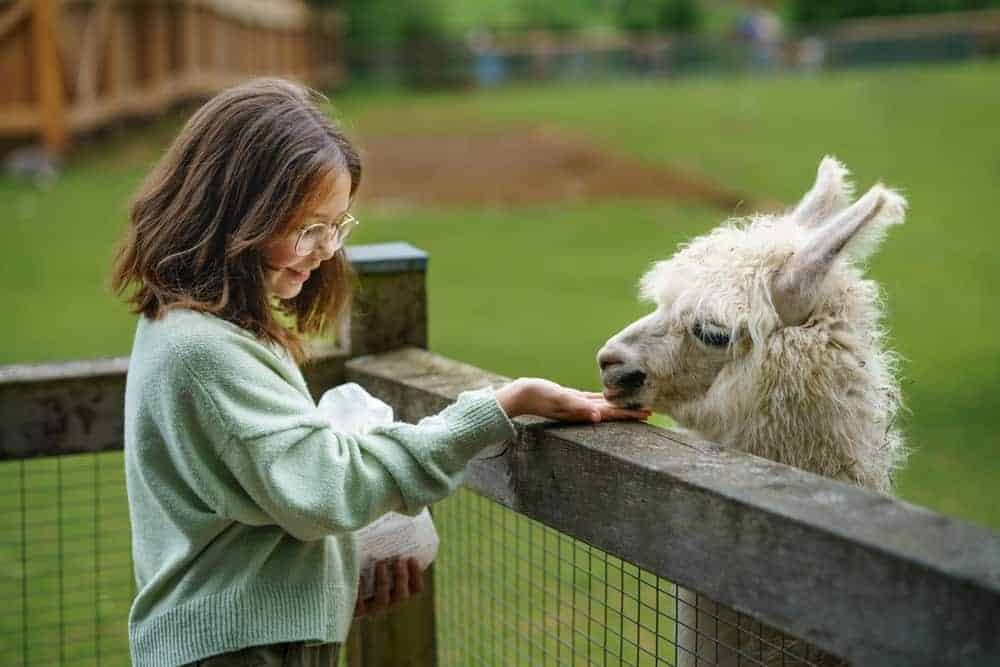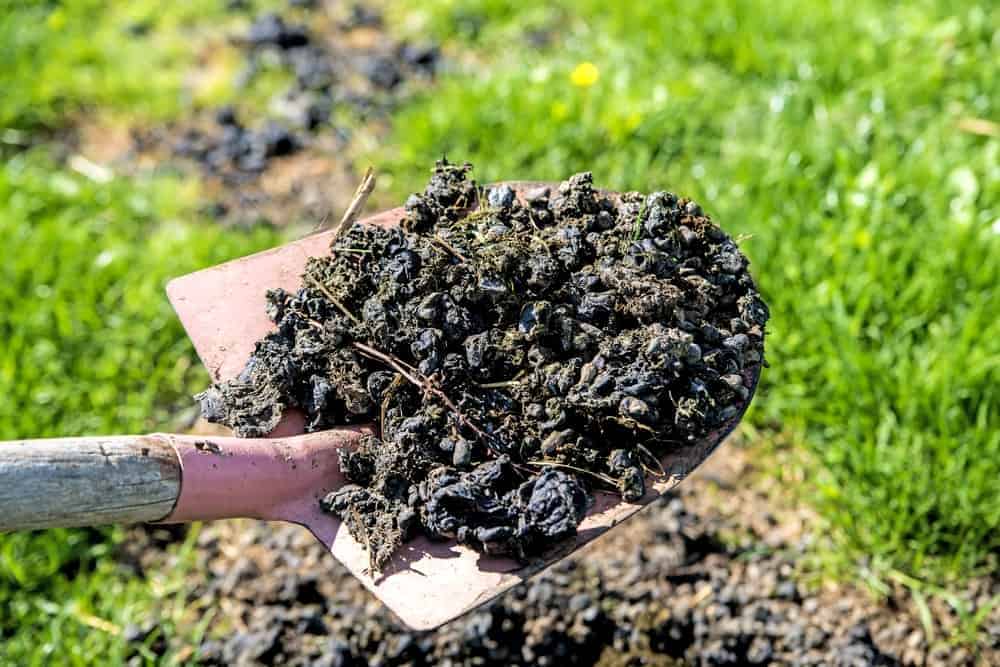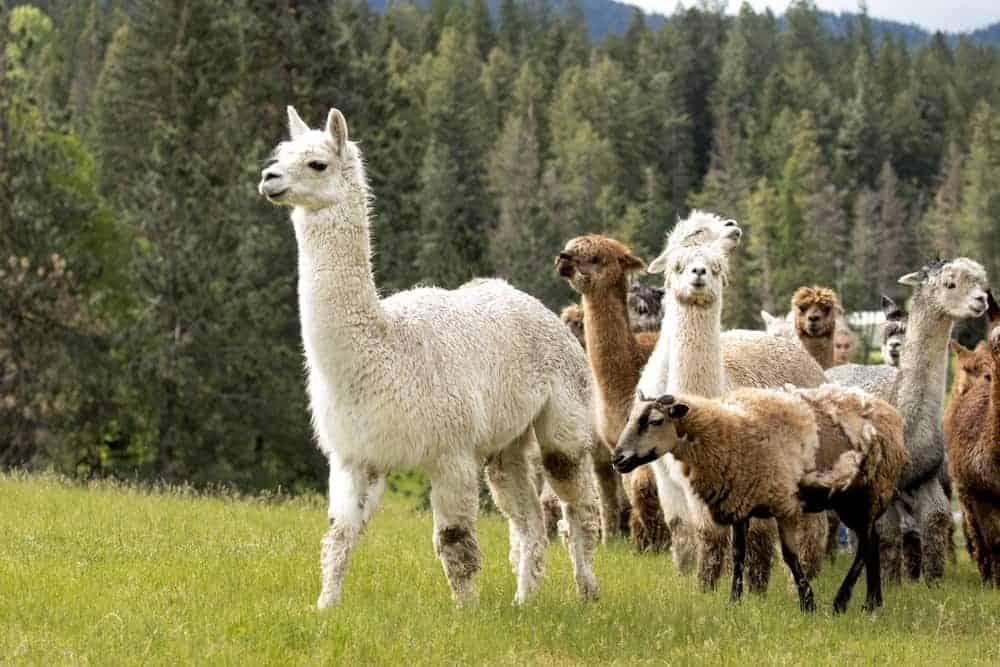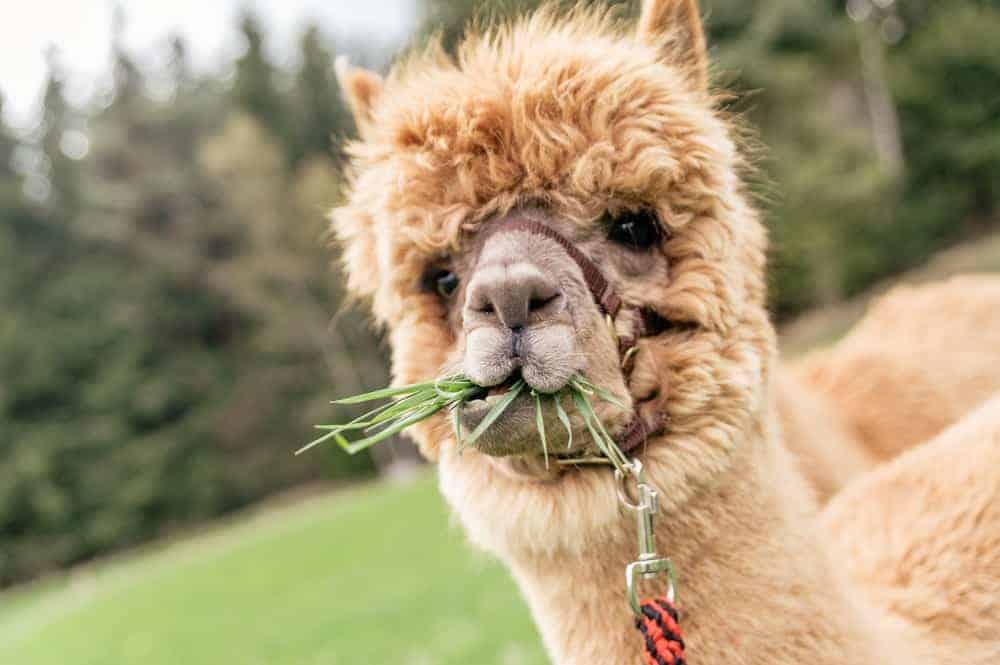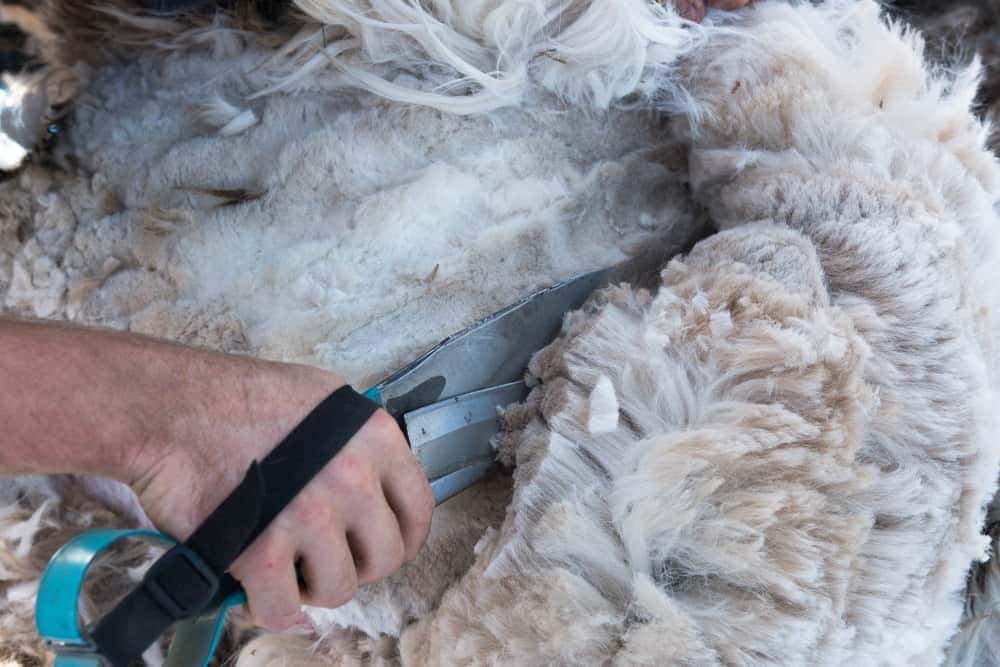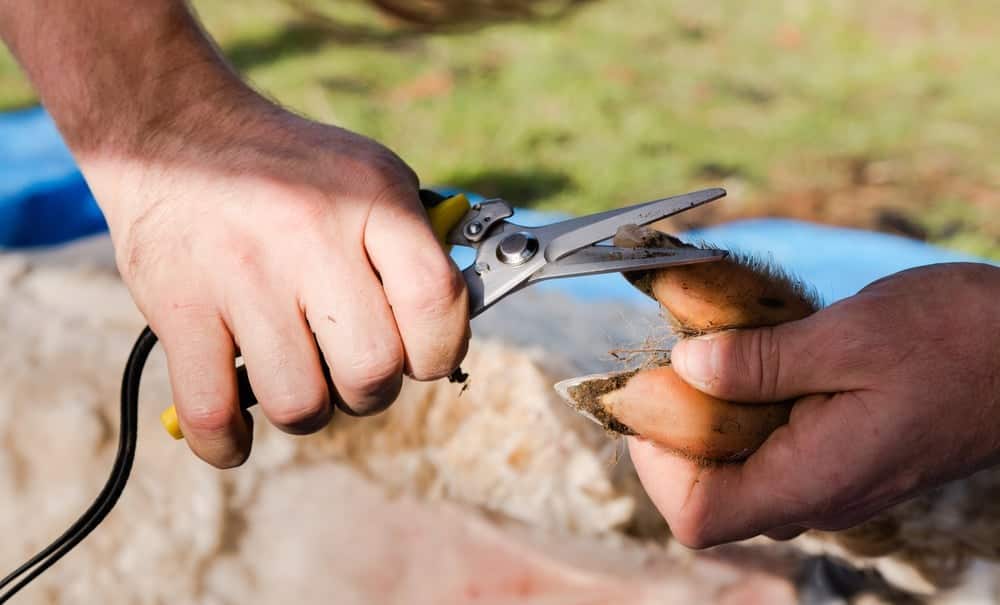On a homestead, alpacas are a fantastic addition due to their unique characteristics. Not only do they exhibit gentle nature towards children, but they also demonstrate unwavering dedication to protecting your property. Moreover, their fiber can be utilized to create various textiles. With sufficient space and time invested in their care, raising these animals is relatively effortless.
Upon receiving proper training, alpacas can develop calm and friendly personalities, making them a delight to have around.
Benefits of Raising Alpacas
While there are numerous farm animals to consider, raising alpacas stands out for several compelling reasons. Their unique characteristics and benefits make them an attractive option for farmers seeking a valuable addition to their operations.
Excellent Wool
The esteemed reputation of alpacas’ wool is well-deserved, boasting exceptional softness, warmth, and durability. Moreover, its hypoallergenic properties make it a highly prized material. For those venturing into the realm of new fibers or seeking to curate a collection of yarns for personal projects or entrepreneurial pursuits, alpacas’ wool offers an excellent opportunity.
With the ability to spin this luxurious fiber into yarn bundles, one can not only create unique and personalized items but also share them with others through online marketplaces or local artisan fairs.
They’re Friendly
Starting an alpaca business can be a fulfilling venture, allowing you to generate an additional income stream from your friendly farm companions. By opening a petting farm or offering animal encounters, you’ll have the opportunity to connect with your community and provide a unique experience for visitors of all ages. The joy of having these gentle creatures around is undeniable, and they’re more than happy to welcome their human friends with open arms – literally!
Unlike some other animals, alpacas are known to be friendly towards dogs, cows, cats, horses, and even other equines, making them excellent companions for horses that need a buddy. With proper socialization from an early age, your alpacas will thrive in the company of multiple species, creating a harmonious and engaging farm environment.
They Make Great Pets
Raising alpacas can be a game-changer for those seeking a calming and uplifting experience. These gentle creatures have a unique ability to form strong bonds with their owners, and their soft, velvety fur is a joy to touch. Not only do they provide companionship, but they also encourage outdoor activities and a sense of responsibility, making them an excellent addition to any homestead.
In today’s fast-paced world, it’s easy to get caught up in the hustle and bustle of daily life and forget to stop and appreciate the simple things. But with alpacas by your side, you’ll be motivated to take a step back and enjoy the moment. Their playful antics are sure to bring a smile to your face and remind you of the importance of taking time to relax and unwind.
In addition to providing mental health benefits, alpacas can also be an excellent teaching tool for children.
By allocating tasks such as feeding and cleaning their shelter, kids can learn valuable lessons about responsibility and compassion. And for those who are nervous around animals, alpacas offer a unique opportunity to build confidence in a gentle and non-threatening environment.
Alpaca Fertilizer
One of the often-overlooked benefits of raising alpacas is their manure, which can prove incredibly valuable for your homestead’s soil health. By using it as a natural fertilizer, you can promote healthy plant growth without relying on synthetic alternatives. However, it’s essential to note that fresh alpaca droppings shouldn’t be applied directly to the soil, as this could potentially harm your plants.
Instead, create a pile of the manure and any accompanying shavings, allowing it to decompose naturally before incorporating it into your gardening routine.
The joy and companionship they bring is an added bonus! Witnessing a baby alpaca for the first time can be a truly heartwarming experience, making it difficult to resist bringing one of these charming creatures into your life.
As you’ll soon discover, having an alpaca by your side will undoubtedly bring a smile to your face and create cherished memories.
They’re Clean
While managing waste on a homestead can be an arduous task, some livestock prove to be surprisingly low-maintenance in this regard. Alpacas, for instance, are known for their fastidious nature, leaving behind tidy piles of manure and minimizing mess when they feed. Their predictable habits make it easier to keep the area clean, providing a welcome respite from the usual drudgery of cleaning up after livestock.
They’re Protective
While alpacas may not be perceived as aggressive animals, they do possess a strong instinct for protection. They will go to great lengths to defend their herd from predators, often chasing them away with determination. In fact, some individuals swear by the effectiveness of alpacas as guardians, citing their ability to ward off threats without the need for traditional guardian dogs.
How to Care for Alpacas
Thinking of adding some alpaca charm to your life? Before making any purchases, it’s crucial to consider the commitment involved in caring for these lovable creatures. Fortunately, their needs are not overly complicated, which is part of their appeal. To simplify the process, consider creating a checklist for raising alpacas and keeping it easily accessible. This visual reminder will help you stay on top of your responsibilities and ensure a harmonious coexistence with your new furry friends.
Shelter
While alpacas can thrive in various climates, they require sufficient shelter from extreme temperatures. Their native habitats in Peru and South America are mountainous regions with ample space, making them well-suited for larger areas with scattered trees. However, they’re also adaptable to smaller spaces. As they originated from cold regions, they can tolerate freezing temperatures and withstand highs up to 103°F. Nevertheless, providing a refuge from the elements is crucial.
Before introducing alpacas to your homestead, ensure you have a suitable shelter in place. Alternatively, create a cozy sanctuary within a barn or protected area. When designing the space, remember to measure it carefully to accommodate your alpaca population. While extra heat isn’t necessary, monitoring temperatures during winter and adding a heater if needed is a good idea.
Outdoor Space and Fencing
When considering the space requirements for your alpaca homestead, the key factor is the number of animals you plan to keep. A general rule of thumb is one acre of land can comfortably accommodate 5-8 alpacas. However, it’s essential to remember that more space is always better for the health and wellbeing of your animals. The ideal environment for your alpacas should be fertile, clean, and free from hazards and debris.
To achieve this, you’ll need to clear a suitable area of any obstacles before installing a fence to keep them secure and safe within your homestead. Failing to do so could result in your alpacas escaping the designated area and risking injury. Fortunately, these intelligent animals will learn their limits and avoid pushing against the fence.
When it comes to fencing materials, barbed wire or electric fences can be effective options, but you’ll need to exercise caution when installing them to ensure the alpacas’ safety. To mitigate this risk, consider using sheep fencing or deer fencing, which are specifically designed for protecting other animals and pose no safety concerns.
Food and Drink for Alpacas
One of the joys of owning an alpaca is watching them roam freely around your homestead, munching on whatever greenery they can find. Their gentle nature means you don’t have to worry about them damaging your landscape, making them a great addition to any property. To keep them happy and healthy, it’s essential to provide a diverse diet that includes herbs, shrubs, and high-quality hay like alfalfa or clover. These nutrient-rich foods will give your alpacas the sustenance they need to thrive.
In addition to a balanced diet, it’s crucial to ensure your alpacas always have access to fresh, clean water. This is especially important since they require plenty of hydration to stay healthy and energetic. Make sure to check their water source daily to guarantee its freshness.
Shearing Their Hair
In addition to providing the basic necessities for your animals, it’s essential to prioritize their overall health through regular nail care and fiber maintenance. A crucial aspect of this is shearing alpacas to prevent overheating during summer months. Their long fur can hinder their movement, making it necessary to trim it regularly. The removed fibers can be repurposed for knitting or crocheting, or sold at a local farmer’s market.
Alpaca wool is highly sought after by crafters and those interested in organic fibers, with many seeking fleece from the animal’s back area. However, fiber from the neck and upper legs is also suitable for use. On average, an alpaca will produce between 5-10 pounds of wool per year.
Nail Trimming
To maintain the overall health of your alpaca, regular nail trimming is crucial. Since their nails grow rapidly, it’s recommended to trim them every six weeks. However, if the terrain where they roam is hard and rough, the nails may naturally wear down over time, allowing you to wait a bit longer before the next trimming session. As alpacas age and slow down, it’s essential to pay closer attention to their nail growth and trim them when necessary.
For those who feel uncertain about performing this task themselves, local veterinarians are always available to lend a helping hand and ensure your alpaca remains in top condition.
Medications
When it comes to vaccinating your alpacas, there are two primary concerns: tetanus and Clostridial shots. Additionally, youngsters and pregnant females require vitamin D injections during the winter months, as their natural habitat is characterized by strong sunlight. It’s essential to consult with your veterinarian regarding local protocols for administering vitamin D. In terms of tetanus vaccinations, it’s crucial to get your alpacas protected early on.
As soon as you bring them home, schedule a tetanus shot. Ideally, this should occur within the first few days of their arrival. Following the initial vaccination, regular booster shots will be necessary to ensure ongoing protection.
